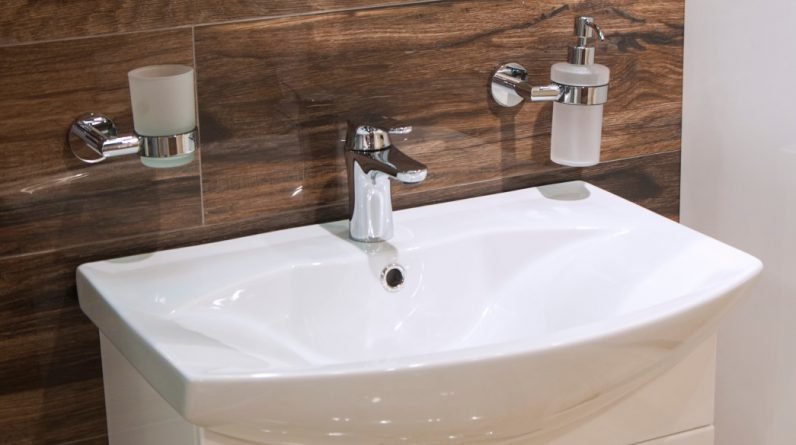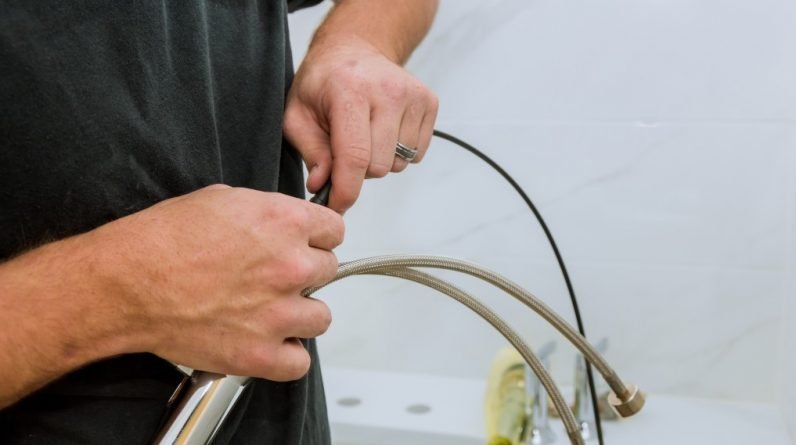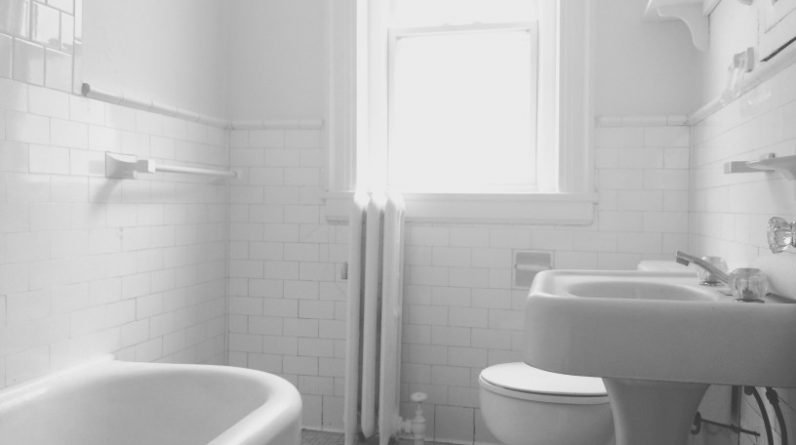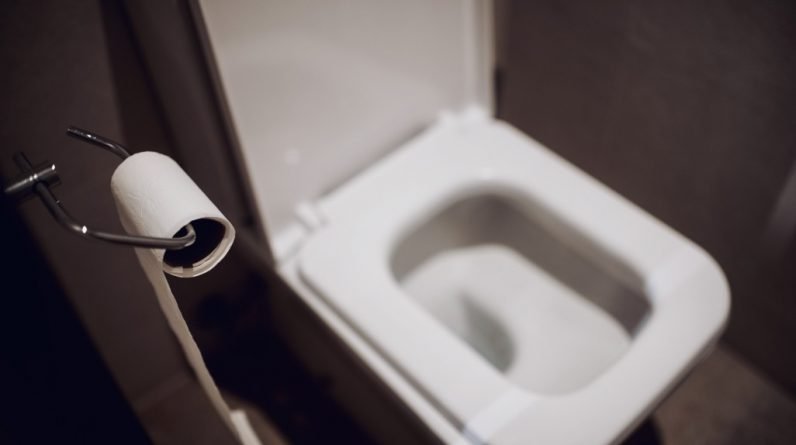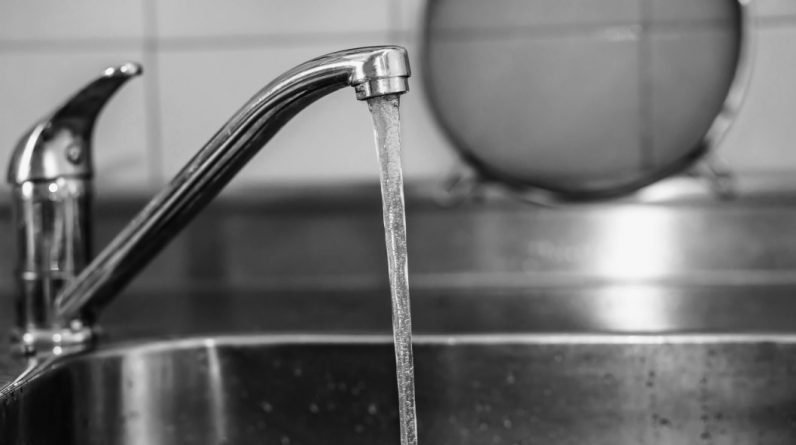
Causes Of Blocked Drains And Pipes And How To Prevent Them
Blocked drains and pipes are a common problem faced by homeowners. They can cause lasting damage to the plumbing system, resulting in costly repairs. Knowing the causes of blocked drains and pipes, as well as how to prevent them, is essential for keeping your home safe and sound. Here’s what you need to know about avoiding this pesky issue.
Clogged drains and pipes can be caused by a variety of things – from hair and food scraps to tree roots invading your sewer lines. It’s important to know the source of these blockages so that you can take steps to avoid them before they become an expensive headache. By recognizing potential issues early on, you may save yourself time, energy, and money down the line.
Preventing blockage involves more than just being aware of its sources; it also requires regular maintenance and cleaning habits that keep your drainage system running smoothly. From using screens over drain openings to scheduling annual inspections with a qualified plumber, there are several actions homeowners can take now in order to reduce their risk of future clogs later.
## 1. What Causes Blocked Drains And Pipes
Blocked drains and pipes are a common issue in many homes. They can be caused by a variety of things, such as inappropriate objects being flushed down the toilet, grease build-up inside the drainpipe, tree roots blocking the sewer line or foreign objects lodging themselves in an elbow joint. All these reasons require different solutions to unblock them.
First up is debris that’s been inappropriately flushed down the toilet. This could include anything from wipes or nappies to bottles and toys. Anything that isn’t liquid or human waste shouldn’t ever be put into toilets – this will cause blockages quickly due to its size and shape. The solution for this would be to use specialised tools like plungers, snakes and augers which help remove the blockage without causing damage to your plumbing system.
Grease buildup is another frequent culprit for blocked drains and pipes but it’s one of the easiest problems to prevent before it even starts. Grease should never go down any type of sink drain because once it cools off it sticks onto pipe walls and builds up over time until eventually it blocks the entire pipe. To avoid this happening you should keep fat traps in all kitchen sinks so fats don’t make their way into your drainage system. Regular cleaning with boiling water also helps break down stubborn deposits of grease that have already built up over time.
Tree roots can also penetrate through small cracks or joints in sewer lines resulting in clogs further downstream in your plumbing system leading to unpleasant smells and overflowing sewage backup issues if not resolved on time. To avoid this problem you should get regular inspections done on your home’s plumbing systems so potential problems such as root intrusions can be identified early enough before they become bigger issues needing more expensive repairs later on.
In summary, blocked drains and pipes are a common issue faced by homeowners; however there are several ways we can take precautionary steps against them including not flushing inappropriate items, using fat traps, regularly cleaning our pipes with boiling water and getting regular plumbing inspection checks done at least yearly
## 2. Common Clogs In Drains And Pipes
Clogs in drains and pipes can be caused by a variety of things. Hair, soap scum, food particles, grease, dirt and other debris are some of the most common culprits. These clogs often occur when these items get stuck and build up inside of the pipe or drain over time.
Faulty plumbing systems can also contribute to blocked pipes and drains. If seals around joints leak due to age or poor installation they can allow foreign objects into the system which will then eventually cause blockages. Corrosion or cracks within the piping itself can lead to leaks that reduce water flow thereby causing obstruction further along down the line.
In order to prevent clogging in drains and pipes it is important to regularly check any exposed piping for signs of damage such as leaking seals or corrosion. Additionally, filters should be installed on sinks used for washing dishes or food preparation so that large pieces do not enter the drainage system directly where they could potentially cause obstructions further downstream. It’s equally important to avoid pouring greases and oils down kitchen sinks as this material hardens with time making it difficult for anything else pass through afterwords.
## 3. Signs Of A Blocked Drain Or Pipe
Blocked drains and pipes can cause a lot of problems, so it’s important to know the signs that indicate one. Knowing these warning signals will allow homeowners to avoid bigger issues in the future.
The most common sign is that water just doesn’t move as quickly down the drain or pipe as before. Slow draining could be caused by build-up on the walls of the pipe due to grease, soap scum, hair, etc., which all act like glues trapping debris and clogging up the entire system. Other indicators include gurgling noises when you run your sink or flush your toilet, bad smells coming from sinks or faucets and toilets overflowing or not flushing properly. If any of these occur, then it’s time to take action.
There are ways to prevent blocked drains and pipes from occurring in the first place. Homeowners should regularly inspect their drainage systems for any potential blockages and use baking soda mixed with vinegar once a month to help keep them clean. It is also advised not to pour cooking oil into drains or put large items such as sanitary products into toilets because this will lead to an eventual blockage if done often enough over time. Taking care of your plumbing system now can save you considerable trouble later on!
## 4. Prevention Through Proper Maintenance
Maintenance is key in preventing blockages. Little actions taken over time can save large headaches down the road. Cleaning and inspecting pipes regularly, as well as avoiding certain items that are damaging to plumbing, can greatly reduce the chance of a clog or blockage.
First, cleaning pipes should be done on a regular basis. This may involve using a brush or special cleaner designed specifically for drains and pipes, depending on what type they are made from. Regularly removing debris buildup will help minimize blockages before they become an issue. Keeping hair out of sinks and showers by installing strainers is also helpful; these devices catch hairs before they reach the drain pipe and consequently cause a blockage in it.
Second, inspect all drains and pipes for cracks or other signs of damage which might let foreign substances into them. If any area seems weakened such as with broken seals around tubs or toilets then this should be fixed immediately since water leakage could lead to degradation inside the plumbing system leading to more severe issues later on like corrosion or breaks within the piping itself. Additionally, checking outside for any tree roots near your sewer line can prevent future problems due to their propensity to grow through underground lines causing leaks which eventually contribute toward blocked drains and pipes.
It is important to make sure no harsh chemicals get put down either kitchen or bathroom sinks because these caustic liquids can have detrimental effects on both metal piping systems as well as plastic ones – making them weak spots where clogs form easily if not monitored carefully enough over time. Additionally, avoid putting fibrous materials such as cotton swabs, paper towels, facial tissue etc., into toilets since these do not break down quickly like toilet paper does when exposed to water thus increasing chances of an eventual backing up situation occurring at some point along its journey through the drainage network.
By following these steps one can ensure that their drains remain healthy and free flowing for longer periods of time without having frequent visits from plumbers due to blockages caused by improper maintenance habits!
## 5. Avoiding Common Household Objects
Clogged pipes and drains can be a hassle. Proper maintenance is key for preventing them in the long run, but so is avoiding certain objects commonly found around the house. Here are some of those items to look out for.
First, watch out for hair. It’s one of the most common causes of blocked pipes and drains. When showering or washing your hair, make sure to use a drain guard with fine mesh that catches any strands before they enter the pipe system. This will save you time—and money—in repairs down the road.
Second, pay attention to what goes down your sink or toilet: food waste should never go into either! Grease and fat buildup on interior walls can cause clogging over time if it isn’t cleaned properly after each meal. Coffee grounds, rice, and pasta also have a tendency to expand in water-filled pipes which increases potential blockage risk. To avoid this type of problem altogether, dispose of these items in an outside compost bin instead whenever possible.
Finally, even small items such as cotton swabs and sanitary products can lead to drainage problems when flushed down toilets or thrown away in sinks – not only because they don’t break apart easily but also because they may wrap themselves around other debris already inside the pipes leading up to bigger issues further along the line. Avoiding these materials entirely will help keep your plumbing running smoothly at all times!
## 6. How To Unclog A Drain Or Pipe
Clogs and blockages can be a major headache for homeowners. When it comes to unclogging drains and pipes, there are several ways you can go about it. It all depends on the severity of the clog or blockage and what kind of materials are causing it.
One way to tackle this problem is by using chemical drain cleaners. These products contain powerful chemicals that break up the material blocking your pipes, allowing water to flow freely again. However, these chemicals can also be dangerous if used incorrectly so make sure you follow the instructions carefully before use. Additionally, they may not always work as effectively in reaching deep-set clogs since they rely on gravity to get them down into the pipe system.
Another option is manual cleaning with a plunger or snake tool. A plunger uses suction created by pressing its cup against the surface of the pipe to generate pressure which forces out any debris caught inside. For tougher clogs or longer runs of blocked piping, a flexible metal cable called a snake can be fed into the drain from above, clearing away any obstructions in its path. This method should only ever be done by an experienced professional though as improper usage could damage your plumbing system further.
Taking steps such as regularly removing hair from shower and sink drains and being mindful about what you flush down toilets will help avert many problems associated with blocked drains and pipes altogether – saving time, money and stress in the long run!
## 7. Professional Drain And Pipe Maintenance
Maintenance is key when it comes to avoiding blocked drains and pipes. Professional drain and pipe maintenance can save a household from costly repairs in the future. It involves preventive measures that reduce blockages, such as cleaning gutters regularly and checking drainage systems for leaks or corrosion.
To keep your home’s plumbing system running smoothly, hire an experienced plumber at least once a year. A professional will inspect all the pipes in your house, identify any weak spots or areas of wear and tear and repair them before they become major problems. This could include fixing cracked pipes, replacing old fixtures and clearing blocked pipes with specialized tools like augers or snakes.
Professional maintenance also includes regular inspections of underground sewer lines and septic tanks if applicable. These should be inspected every few years to ensure there are no breaks or obstructions that can cause backups in your drainage system. Additionally, leak detection services may be necessary if you notice water pooling around your foundation or smell sewage odors coming from inside the house. Taking these preventative steps now will protect you from costly repairs down the road.
It pays to invest in quality materials too; PVC pipes last longer than metal ones due to their resistance to rust, which helps avoid clogs caused by corrosion buildup over time. So don’t skimp on quality – this one-time investment could end up saving you money in the long run!
## 8. Cost Of Professional Services
In many cases, a professional plumber is the best option for unblocking drains and pipes. But it comes with its own cost: that of professional services.
The price of hiring a plumber varies depending on the job at hand; some jobs may require only an hour or two while others can take up to days or even weeks. For instance, if there’s been damage to the drainage system due to tree roots, more time will be required in order to repair any damage and get it back running again. Additionally, if you need small repairs like pipe-tightening or replacing taps, these usually wouldn’t require as much labour but still come with their own costs.
When looking into getting professional help with your blocked drain or pipe problem, make sure to research before making a decision – this includes checking reviews from previous customers and finding out what kind of experience they had when dealing with a certain plumbing service provider. You also want to find out how much money they charge for their services so you’re not surprised by unexpected fees later on. Quality should also be taken into consideration; never settle for second-best just because it’s cheaper!
Costs are just one factor among many when considering having someone else take care of your blocked drain or pipe issue – time efficiency, customer satisfaction and quality all play a part too. It pays off to do your research beforehand so don’t skimp on researching potential professionals who could help resolve your woes.
## 9. Benefits Of Professional Drain And Pipe Maintenance
Regular professional maintenance of drains and pipes can save you a lot of hassle in the long run. Keeping up with regular cleaning, inspections and repairs is essential for preventing blocked drains and pipes. Professional services have many benefits that are worth considering before attempting to take on the job yourself.
One benefit of professional drain and pipe maintenance is their knowledge of the best practices for keeping your systems clean and in good condition. They will know which chemicals or techniques are most effective at removing debris from your system without causing damage. Professionals also have access to specialized tools like hydro jetters, augers, cameras, locators and more that can help them identify any issues quickly and accurately so they can be addressed promptly.
Another important benefit of using professional services is their experience dealing with different types of plumbing problems such as roots growing into pipes or corrosion building up inside them. This enables them to identify potential issues ahead of time so they can prevent further complications down the line rather than just fixing the current issue but not addressing future problems. Additionally, professionals may be able to advise you on how to better maintain your system over time to reduce wear-and-tear on it and increase its longevity.
Overall, there are plenty of advantages to using professional services when it comes to maintaining your drains and pipes. From years of expertise in identifying potential problems early on, having access to advanced equipment along with knowing what chemical solutions work best where; these all make sure that your system stays running smoothly for longer periods of time while saving you money in the process too!
## 10. Diy Tips For Unclogging A Drain Or Pipe
Unclogging a drain or pipe can be messy and challenging, but it’s not impossible. With the right tools and some elbow grease, you can tackle most clogs yourself. Here are diy tips for unclogging a drain or pipe:
First, check if there’s an obstruction in the pipes. If so, remove it as best you can with tongs and/or pliers – never use your hands! After that, try using baking soda mixed with vinegar to break down tough blockages. Finally, pour boiling water into the sink to flush away built-up debris.
If these methods don’t work, it might be time to bring out the big guns: a plunger. A plunger is used by creating suction on the opening of the blocked pipe until the pressure forces any trapped material loose. Additionally, chemical solutions like Draino may help dissolve stubborn obstructions without damaging your pipes. However, always read and follow safety instructions before doing anything else when dealing with chemicals!
When all else fails, contact a professional plumber who has experience unblocking drains and pipes quickly and efficiently. Professional maintenance will also ensure long-term prevention of future buildups in your plumbing system.
## Frequently Asked Questions
## What Is The Best Way To Unclog A Drain Or Pipe?
Clogged drains and pipes can be a real headache. They are often caused by debris, such as hair, soap scum and food particles that accumulate in the pipe over time. The best way to unclog a drain or pipe is to take preventive measures before it becomes blocked. This includes regularly cleaning out any debris from the sink or bathtub and avoiding pouring grease down the drain.
If you already have a clogged drain, there are several steps you can take to try and clear it without having to call a professional plumber. One option is using chemical cleaners which will dissolve whatever is blocking the pipe. However, this method should only be used with caution as certain chemicals may damage your plumbing system if not applied properly.
Another approach is manual removal of blockages with specialized tools like augers or plumbers’ snakes. If done correctly this technique should remove most types of clogs quickly and effectively without causing unnecessary damage to your pipes or fixtures. Additionally, make sure to check other areas around the house for possible sources of blockage that could cause future problems. Inspecting all visible piping periodically will help keep things running smoothly for years to come.
By taking proactive steps now, homeowners can avoid costly repairs later on due to preventable issues related to drainage systems. Taking these simple precautions will save money in the long run and ensure that your home’s plumbing remains problem-free for many years ahead.
## Are There Any Natural Or Eco-Friendly Methods For Unclogging Drains And Pipes?
Clogged drains and pipes can be a huge problem. It is important to know how to prevent them from occurring in the first place as well as what methods are available for unclogging them if they do happen. Are there any natural or eco-friendly ways of unclogging drains and pipes?
Yes, there are several different options that use only natural ingredients to help clear up clogs. Baking soda mixed with vinegar is one method that works effectively; it creates an effervescent reaction which helps break apart blockages due to grease and other debris. Additionally, boiling water poured down the drain can also help loosen gunk stuck in the pipe. This technique may need to be repeated multiple times before seeing results but when used properly it can work quite well.
Finally, using environmentally friendly products such as those made with essential oils like lemon or orange oil can provide an effective solution while avoiding harsh chemicals that could damage your pipes over time. These solutions tend to dissolve fats and greases faster than baking soda and vinegar alone, often proving helpful against more stubborn clogs. The key here is to ensure you follow instructions on product labels carefully so you don’t end up causing further damage instead of fixing the issue at hand!
It’s always best practice to take steps towards preventing blocked drains and pipes in the first place by regularly cleaning out sinks or showers with hot water each month, removing hair build-up around shower strainers, and being mindful not to pour cooking oils down kitchen drains. By following these simple tips you should be able to keep your plumbing running smoothly without having to resorting to expensive chemical treatments or manual labor!
## How Often Should Drains And Pipes Be Professionally Serviced?
Drains and pipes require regular professional servicing to prevent blockages. With the right maintenance schedule, plumbing problems can be avoided before they occur. Cleaning and inspection of drains and pipes should take place at least once a year.
Regular servicing will help identify potential clogs or issues in the system that could cause bigger problems down the line. Early detection is key for avoiding blocked drains and pipes; this also allows professionals to flush out any debris from drains and pipes that may have built up over time. Professional plumbers are able to detect signs of damage early on, so it’s important to have your system checked regularly.
Getting a professional opinion on your drainage system is often the most effective way to keep it functioning properly. A qualified technician has specialized knowledge about all kinds of drain systems, allowing them to provide you with tailored advice and solutions specific to your home or business needs. They can inspect each section closely, addressing any small issues before they become major ones.
Servicing by experts every twelve months will ensure that no surprises appear when it comes to your residential or commercial drainage system – as well as preventing costly repair bills further down the road.
## Is It Safe To Use Chemical Cleaners To Unclog Drains And Pipes?
Drains and pipes can often get clogged, leading to an unpleasant mess. Unclogging them is necessary but it’s important to consider the safety of doing so. Is it safe to use chemical cleaners?
Chemical cleaners are not always a good idea when dealing with drains and pipes. They contain strong chemicals that may corrode or damage some pipe materials. If used incorrectly, they can also have adverse effects on the environment. Furthermore, toxic fumes from these products can be dangerous for people in enclosed spaces as well as animals and plants living nearby.
It is best to consult a professional before using any type of chemical cleaner to unclog your drain or pipe system. Professionals know which types of cleaners are suited for different kinds of pipes and will ensure the job gets done safely without damaging the plumbing system. Other methods such as plungers or augers might be better options depending on the kind of blockage you’re dealing with.
Whichever way you choose, make sure you take all safety precautions into consideration before attempting anything yourself at home – this includes making sure you wear protective gear like gloves and masks if needed. It’s also important to regularly maintain your drains and pipes by clearing out debris frequently in order to prevent future build-ups that could lead to further problems down the line.
## Are There Any Home Remedies That Can Help Prevent Blocked Drains And Pipes?
Blocked drains and pipes can be a real headache. Fortunately, there are things you can do to prevent them from clogging up in the first place. Are there any home remedies that can help? Let’s take a look.
First, it is important to clean your drains on a regular basis. This includes using baking soda or vinegar as natural cleaning agents – pour half a cup of either down the drain followed by hot water. Doing this every few weeks should keep the problem at bay.
Second, avoid flushing items such as cotton swabs, hair, paper towels, or food waste down the toilet or sink. These will all contribute to blockages eventually if done frequently enough. It’s also wise to check for leaks in fixtures regularly – these could cause long-term damage both inside and outside of your home if not addressed promptly.
Finally, consider investing in some heavy duty filters for your sinks and showers to catch debris before it reaches the drainpipe itself. Products like strainers and grates may seem small but they go a long way towards preventing blocked drains and pipes – saving time, money, and hassle in the future!
## Conclusion
Clogged drains and pipes can be a nuisance. To prevent them from occurring in the first place, it is important to understand the causes of blocked drains and pipes as well as how to unclog them when necessary. Professional servicing should be conducted on a regular basis, along with occasional use of chemical cleaners if needed. Natural or eco-friendly methods are available for those who prefer non-chemical solutions. Home remedies can also help keep drains and pipes clear over time. With proper maintenance and preventive measures, homeowners can avoid costly repairs due to clogs and other blockages. All these tips will help ensure that your plumbing system remains in good condition and running smoothly all year round.

